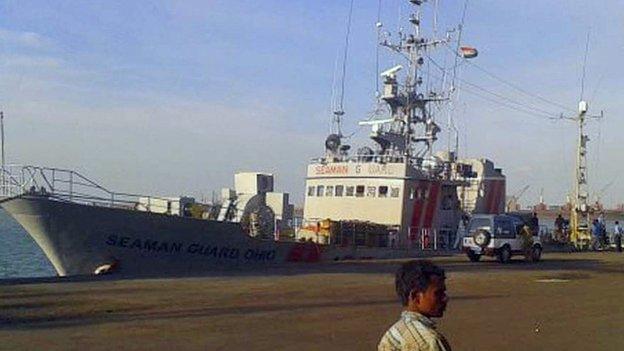Six 'stranded' Britons face India weapons charge trial
- Published
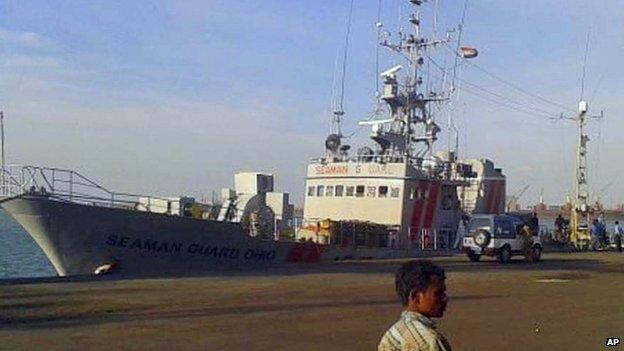
Indian authorities had said they found weapons and ammunition which had not been properly declared
Six British men unable to leave India for nearly two years despite charges against them being dropped have been told they must face trial after all.
The men, arrested in 2013, were accused of illegally possessing weapons while working on a ship monitoring pirates.
The charges were dropped but Indian police blocked their return home by appealing against the decision.
Now the Indian Supreme Court has decided the men do have a case to answer.
Nick Dunn, 28, from Ashington, Northumberland, is one of those stranded.
His lawyer Petula James said she was "disappointed" by the news and the case could take up to six months to get to court.
'Utter disbelief'
Along with Mr Dunn, the men arrested on 12 October 2013 are:
Billy Irving, from Connel, Argyll
Ray Tindall, from Chester
Paul Towers, from Pocklington, East Yorkshire
John Armstrong, from Wigton, Cumbria
Nicholas Simpson, from Catterick, North Yorkshire
Mr Dunn's sister Lisa Dunn said she was feeling "utter disbelief".
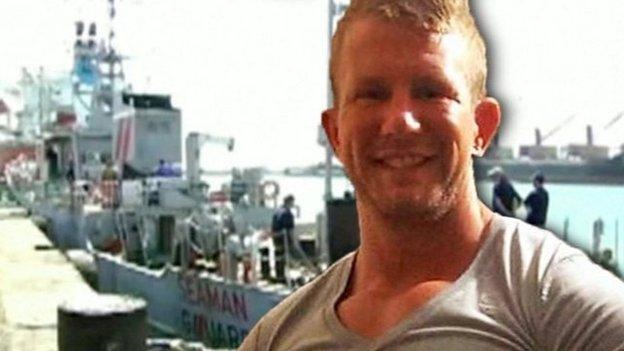
Nick Dunn of Northumberland is one of six Britons arrested in October 2013
"We really thought it was coming to end. It's like a game of ping pong", she said.
"I don't understand it, I didn't understand it 21 months ago and I don't understand it now.
"I've spoken briefly to Nick on Skype and he's not in a good place."
Mr Dunn is living in a hostel on the outskirts of Chennai, formerly Madras, with two Estonians who were also part of the crew of the private US-owned ship MV Seaman Guard Ohio.
Andrew Linnington, of the maritime union Nautilus International, which has been lobbying the UK government on behalf of the crew, has said previously that he feared the men were being made examples of.
He said: "The Indian authorities want to set a deterrent to operators of similar vessels to the one these six men were working on. Just about every element of this case has been disputed."
- Published11 April 2015
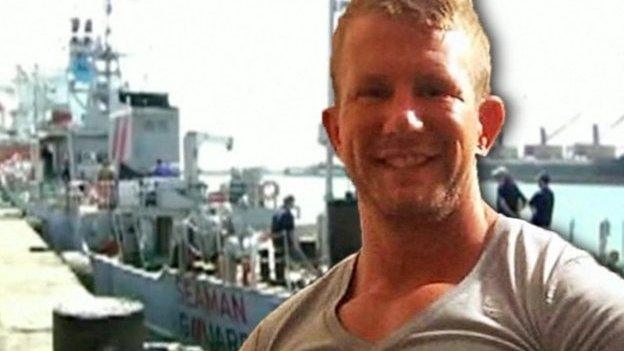
- Published4 October 2014
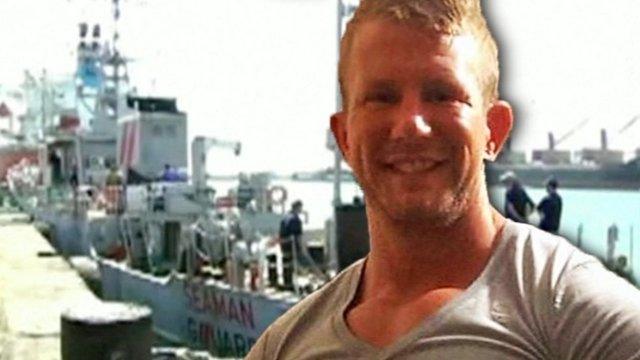
- Published3 October 2014
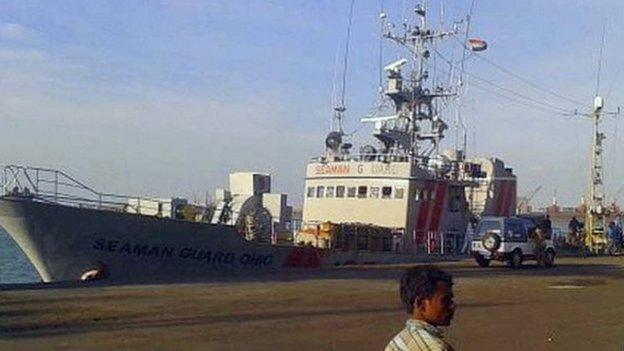
- Published5 April 2014
